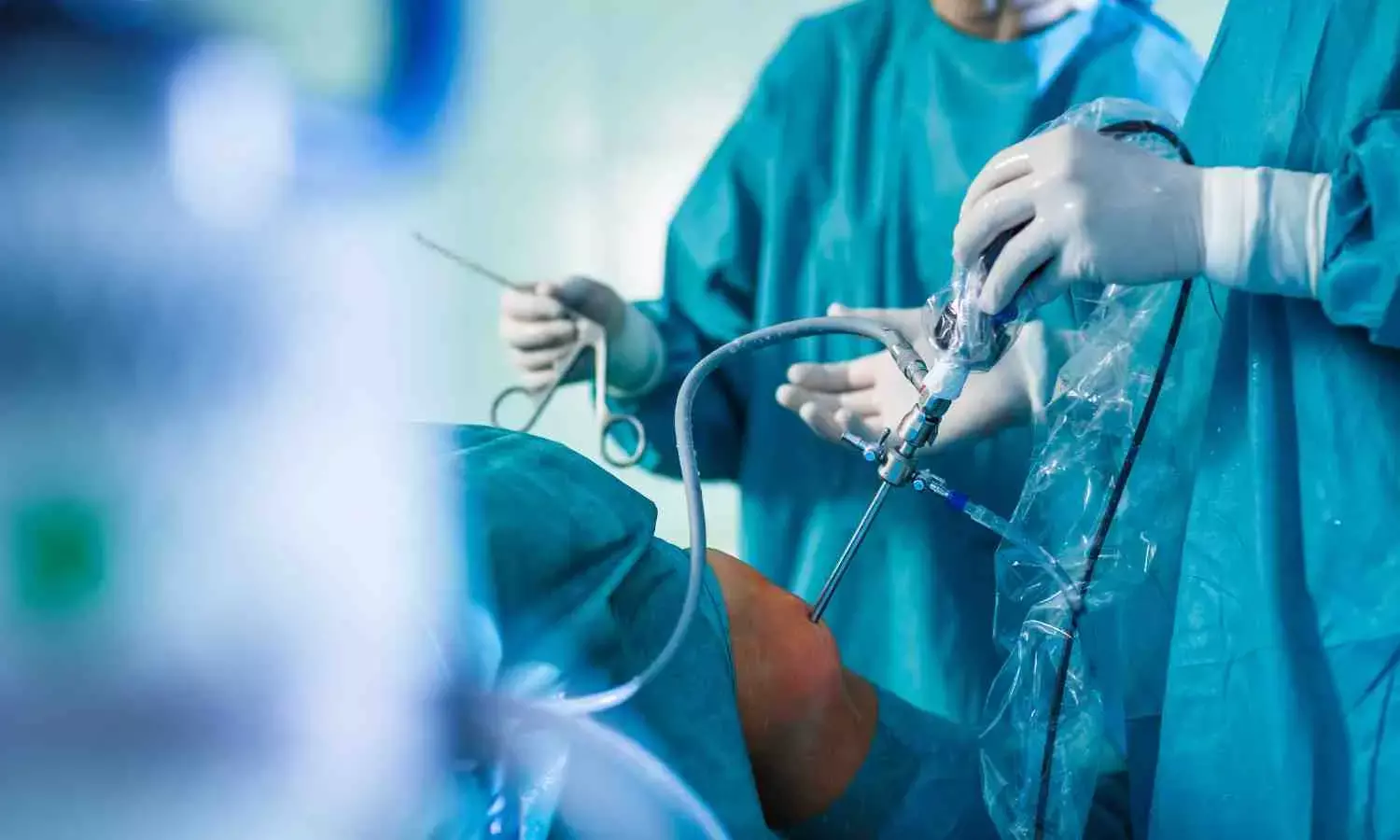- Home
- Medical news & Guidelines
- Anesthesiology
- Cardiology and CTVS
- Critical Care
- Dentistry
- Dermatology
- Diabetes and Endocrinology
- ENT
- Gastroenterology
- Medicine
- Nephrology
- Neurology
- Obstretics-Gynaecology
- Oncology
- Ophthalmology
- Orthopaedics
- Pediatrics-Neonatology
- Psychiatry
- Pulmonology
- Radiology
- Surgery
- Urology
- Laboratory Medicine
- Diet
- Nursing
- Paramedical
- Physiotherapy
- Health news
- Fact Check
- Bone Health Fact Check
- Brain Health Fact Check
- Cancer Related Fact Check
- Child Care Fact Check
- Dental and oral health fact check
- Diabetes and metabolic health fact check
- Diet and Nutrition Fact Check
- Eye and ENT Care Fact Check
- Fitness fact check
- Gut health fact check
- Heart health fact check
- Kidney health fact check
- Medical education fact check
- Men's health fact check
- Respiratory fact check
- Skin and hair care fact check
- Vaccine and Immunization fact check
- Women's health fact check
- AYUSH
- State News
- Andaman and Nicobar Islands
- Andhra Pradesh
- Arunachal Pradesh
- Assam
- Bihar
- Chandigarh
- Chattisgarh
- Dadra and Nagar Haveli
- Daman and Diu
- Delhi
- Goa
- Gujarat
- Haryana
- Himachal Pradesh
- Jammu & Kashmir
- Jharkhand
- Karnataka
- Kerala
- Ladakh
- Lakshadweep
- Madhya Pradesh
- Maharashtra
- Manipur
- Meghalaya
- Mizoram
- Nagaland
- Odisha
- Puducherry
- Punjab
- Rajasthan
- Sikkim
- Tamil Nadu
- Telangana
- Tripura
- Uttar Pradesh
- Uttrakhand
- West Bengal
- Medical Education
- Industry
Metabolic and bariatric surgery safe and effective for patients with severe obesity, finds study

A team of researchers led by Pennington Biomedical Research Center's Dr. Florina Corpodean confirmed through a data analysis that metabolic and bariatric surgery is largely safe and effective for patients who are experiencing severe obesity. In the recent study “BMI ≥ 70: A Multi-Center Institutional Experience of the Safety and Efficacy of Metabolic and Bariatric Surgery Intervention,” published in Obesity Surgery: The Journal of Metabolic Surgery and Allied Care, researchers affirmed that, following surgery-based obesity treatment, patients in this category had an overall rate of serious postoperative complications at 30 days as low as 0.7%, an acceptable surgical risk.
With more than 40 percent of the U.S. population experiencing obesity, health care providers have an increased likelihood of seeing patients with a body mass index, or BMI, exceeding 70 kg/m2. The researchers analyzed the data of 84 patients with excess obesity who received metabolic or bariatric surgery, discerning that while these patients generally had increased likelihood of visits to emergency department, they exhibited low rates of complications at 30 days post operation.
“This research aimed to survey the data from a population that is understudied, but we are proud to have contributed to this necessary data analysis,” said Dr. Corpodean, who is a postdoctoral researcher and surgical research fellow at Pennington Biomedical and who works in the Metamor Metabolic Institute. “Patients with this level of obesity represent a growing demographic, and one that requires nuanced care. The good news is, though these patients may be considered high risk due to their BMIs, bariatric and metabolic surgery remain largely safe for these patients.”
The researchers conducted an analysis of the data, reviewing it for demographics, postoperative outcomes, and changes in BMI and weight. Weight loss was evaluated at different intervals: 30 days, 6 months, and 1 year. They also evaluated rates of emergency department visits, readmissions and reoperation in the first year following the surgery.
“As the prevalence of obesity continues on its current trajectory, doctors, surgeons and researchers are more and more likely to work with patients with BMI’s above 70 kg/m2,” said Dr. Philip Schauer, Director of the Metamor Institute. “Our analysis of the data demonstrates the BMI levels of these patients do not warrant hesitations for performing bariatric and metabolic surgery as a method of treatment to treat them. At Metamor, we see it as our mission to provide this kind of clarity, and we welcome other institutions to pursue future studies with this expanding demographic.”
As of now, there is no accepted maximum BMI value considered to be prohibitive for those in need of bariatric surgery, but it is commonly accepted that an increased BMI translates to increased surgical risk. The researchers’ findings indicated that patients in the demographic show robust weight loss following their metabolic or bariatric surgery, with results durable up to one year following the operation. Findings further showed that, though these patients exhibited high rates of emergency department visits, they demonstrated low rates of complications and reoperations within the first year following surgery.
“Addressing the leading health epidemic of our time is the mission of Pennington Biomedical, and our researchers at the Metamor Institute are delivering on that mission through studies and analysis like this,” said Dr. John Kirwan, Executive Director of Pennington Biomedical. “Though we encourage further research, this study and others like it offer hope to those who are suffering from the deleterious health effects of obesity. Researchers, patients and surgeons can have an increased sense of confidence that metabolic surgery is safe and effective in treating obesity.”
Reference:
Corpodean F, Kachmar M, Popiv I, LaPenna KB, Lenhart D, Cook M, Albaugh VL, Schauer PR. BMI ≥ 70: A Multi-Center Institutional Experience of the Safety and Efficacy of Metabolic and Bariatric Surgery Intervention. Obes Surg. 2024 Sep;34(9):3165-3172. doi: 10.1007/s11695-024-07419-7.
Dr Kamal Kant Kohli-MBBS, DTCD- a chest specialist with more than 30 years of practice and a flair for writing clinical articles, Dr Kamal Kant Kohli joined Medical Dialogues as a Chief Editor of Medical News. Besides writing articles, as an editor, he proofreads and verifies all the medical content published on Medical Dialogues including those coming from journals, studies,medical conferences,guidelines etc. Email: drkohli@medicaldialogues.in. Contact no. 011-43720751


